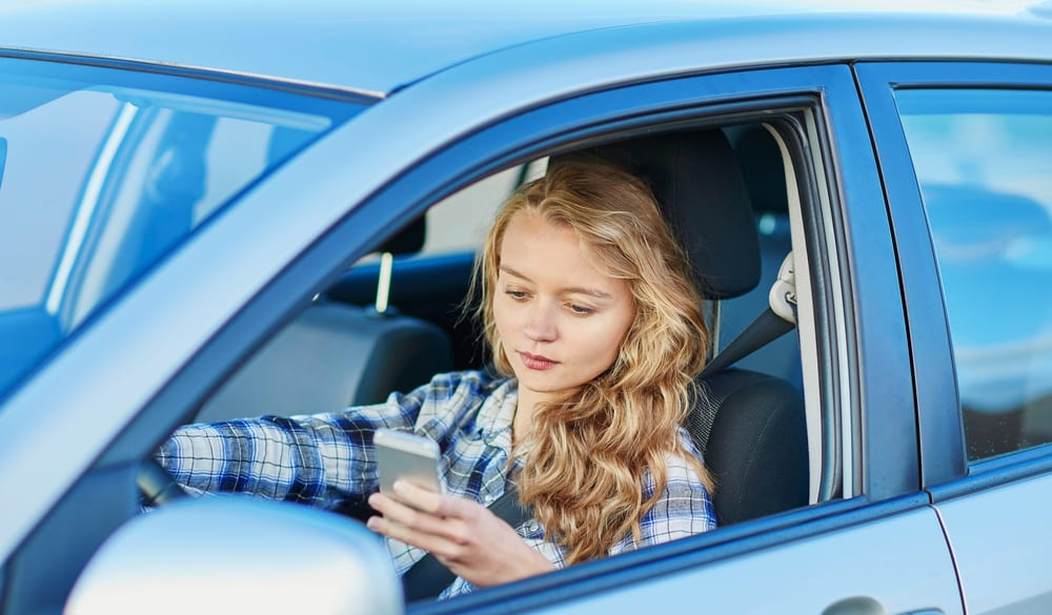Should Apple be responsible for stupid behavior? That’s the premise of a class-action lawsuit filed in California that demands that Apple add a lock-out system to prevent drivers from texting in a moving car with their iPhones.
The lawsuit was initiated by MLG Automotive Law in Los Angeles on behalf of plaintiff Julio Ceja, who was involved in a car accident in which he was struck by another driver allegedly texting on her iPhone while driving. The suit claims that Apple “has had the technology to prevent texting and driving since 2008,” and even cites a patent that Apple has on such technology. It claims Apple is putting profit before consumer safety by not implementing such a feature.
This follows a lawsuit filed in December by James and Bethany Modisette of Texas, the parents of a child killed in another car crash. They contend Apple failed to prevent the driver from using FaceTime while driving.
While many would argue that we are responsible for our own behavior, especially when we do something so stupid, I bet many of us have done it from time to time, stopped at a light and then continued to text as we drove off. I admit that I have.
And, make no mistake about it, texting and other phone usage while driving has become a huge problem. The U.S. Department of Transportation notes that it’s six times more dangerous than drunk driving and that 1.5 million are texting at any one time, the lawsuit cites. The California Highway Patrol attributes 52,000 accidents and 312 deaths in California from drivers texting on their iPhones. According to the FCC, in 2014 there were 3,179 people killed and an estimated additional 431,000 people wounded in motor vehicle crashes involving distracted drivers in the U.S.
Certainly, the technology exists to enable this feature. A phone’s GPS knows when we are moving and could easily provide a warning message and disable the keyboard. It’s a trivial thing to do.
There’s precedence for limiting what can be done while driving. Many automobiles disable certain features from being used while driving, such as entering destinations on the car’s GPS. Waze, the popular navigation app, asks if you are a passenger or driver when it’s being used in a moving car. And even Pokemon Go, the popular game, pops up a warning about using it while moving.
Would such a feature stop people from texting? It definitely would reduce usage, even though there would likely be ways to get around it. There will always be another messaging app to enable somebody so intent on texting. But that’s not the point. Simply reducing usage would save lives, not only drivers, but passengers and innocent bystanders.
The concern of distracted driving has led to a new law in Calif. that took effect at the beginning of this month. California’s distracted driving law, already in effect, prohibited motorists from using a wireless device to “write, send, or read a text-based communication” while driving, except when used in voice-operated, hands-free mode. The new law has been expanded to include all uses of wireless devices. The new version of the distracted driving law doesn’t address texting specifically, but prohibits motorists from “holding and operating” any wireless device while at the wheel, which covers texting and all other wireless device functions. But based on the statistics cited for Calif., laws alone will not solve this issue.
So, if you were an executive at Apple, and had the ability to save lives by implementing this feature in your products, yet at the same time knowing it might hurt sales, what would you do?









Join the conversation as a VIP Member